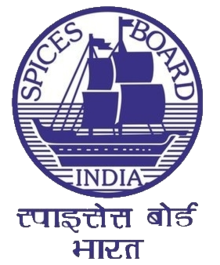
Kochi, also known by its former name Cochin, is a major port city along the Malabar Coast of India bordering the Laccadive Sea. It is part of the district of Ernakulam in the state of Kerala. The city is also commonly referred to as Ernakulam. As of 2011, the Kochi Municipal Corporation had a population of 677,381 over an area of 94.88 km2, and the larger Kochi urban agglomeration had over 2.1 million inhabitants within an area of 440 km2, making it the largest and the most populous metropolitan area in Kerala. Kochi city is also part of the Greater Cochin development region and is classified as a Tier-II city by the Government of India. The civic body that governs the city is the Kochi Municipal Corporation, which was constituted in the year 1967, and the statutory bodies that oversee its development are the Greater Cochin Development Authority (GCDA) and the Goshree Islands Development Authority (GIDA).

Cardamom, sometimes cardamon or cardamum, is a spice made from the seeds of several plants in the genera Elettaria and Amomum in the family Zingiberaceae. Both genera are native to the Indian subcontinent and Indonesia. They are recognized by their small seed pods: triangular in cross-section and spindle-shaped, with a thin, papery outer shell and small, black seeds; Elettaria pods are light green and smaller, while Amomum pods are larger and dark brown.

Nagercoil, also spelt as Nagarkovil, is a city and the administrative headquarters of Kanyakumari District in Tamil Nadu state, India. Situated close to the tip of the Indian peninsula, it lies on an undulating terrain between the Western Ghats and the Arabian Sea.

Idukki is one of the 14 districts in the Indian state of Kerala in the southwest of the country. It is the largest district in Kerala and lies amid the Cardamom Hills of Western Ghats in Kerala. Idukki district contains two municipal towns – Kattappana and Thodupuzha, and five taluks.

The Cardamom Hills or Yela Mala are mountain range of southern India and part of the southern Western Ghats located in Idukki district, Kerala, India. Their name comes from the cardamom spice grown in much of the hills' cool elevation, which also supports pepper and coffee. The Western Ghats and Periyar Sub-Cluster including the Cardamom Hills are UNESCO World Heritage Sites.
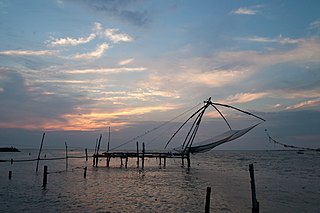
Fort Kochi, also known by its former name Fort Cochin is a neighbourhood of Cochin (Kochi) city in Kerala, India. Fort Kochi takes its name from the Fort Manuel of Cochin, the first European fort on Indian soil, controlled by the Portuguese East Indies. This is part of a handful of water-bound islands and islets toward the south-west of the mainland Kochi, and collectively known as Old Cochin or West Cochin. Adjacent to this is the locality of Mattancherry. In 1967, these three municipalities along with a few adjoining areas, were amalgamated to form the Kochi Municipal Corporation.
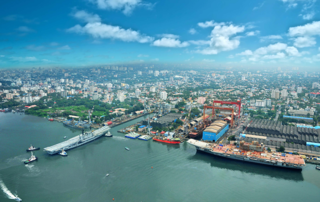
The economy of Kerala is the 9th largest in India, with an annual gross state product (GSP) of ₹9.78 lakh crore in 2020–2021. Per-capita GSP of Kerala during the same period is ₹257,711 (US$3,200), the sixth largest in India. In 2019–20, the tertiary sector contributed around 63% of the state's GSVA, compared to 28% by secondary sector, and 8% by primary sector.
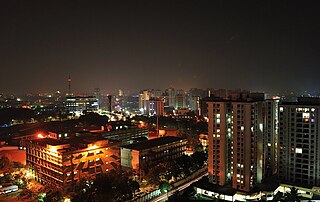
Kakkanad is a major industrial and residential region in the city of Kochi in Kerala, India. It is situated in the eastern part of the city. Kakkanad houses many IT and industrial projects such as the Cochin Special Economic Zone, Infopark, Smart City and KINFRA Export Promotion Industrial Park. It is also the administrative headquarters of the District of Ernakulam.
The economy of South India after independence in 1947 conformed to a socialist framework, with strict governmental control over private sector participation, foreign trade and foreign direct investment (FDI). Through 1960–1990, South Indian economies experienced mixed economic growth. In the 1960s, Kerala achieved above-average economic growth, while Andhra Pradesh's economy declined during this period. Similarly, Kerala experienced an economic decline in the 1970s while the economies of Tamil Nadu, Andhra Pradesh, and Karnataka consistently exceeded national average growth rates after 1970. South India first started to overtake the rest of India economically in the 1980s. Andhra Pradesh, Tamil Nadu and Karnataka were noted by some to be more reform-oriented in terms of economic policy when compared to other Indian states. Over the last decade South India has grown at 8% annually. Future economic growth will be shackled by a relatively low proportion of the active age population to the number of dependents. Today, South India has about 20% of India's population, and contributes about 31% of India's GDP; it is projected to contribute 35% by 2030.
The Marine Products Export Development Authority (MPEDA) is a Government of India company headquartered at Kochi. It was constituted on 24 August 1972, under the Marine Products Export Development Authority Act 1972 . The role envisaged for the MPEDA under the statute is comprehensive - covering fisheries of all kinds, increasing exports, specifying standards, processing, marketing, extension and training in various aspects of the industry.

The economy of Kochi was worth 49453.29 crores in 2012 - 2013 financial year with a growth of almost 7.5% per annum.

The Tea Board of India is a state agency of the Government of India under the control of Ministry of Commerce and Industry, established to promote the cultivation, processing, and domestic trade as well as export of tea from India. It was established by the enactment of the Tea Act in 1953 with its headquarters in Kolkata. It is headed by the Deputy Chairman Saurav Pahari, IAS and separated into Standing Committees referred to as the Executive Committee, the Development Committee, the Labour Welfare Committee and the Export Promotion Committee.
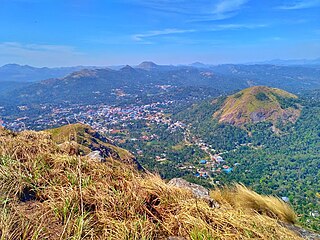
Kattappana is a municipality in the Idukki district of Kerala, India. It is located 21 km (13.0 mi) southeast of the district headquarters in Painavu and about 140 km (87.0 mi) north of the state capital Thiruvananthapuram. As per the 2011 Indian census, Kattapana has a population of 42,646 people, and a population density of 695/km2 (1,800/sq mi). Kattapana is the second-largest municipality in the district by population, and serves as a major hub for commercial and economic activity for the surrounding region.

Coffee production in India is dominated in the hill tracts of South Indian states, with Karnataka accounting for 71%, followed by Kerala with 21% and Tamil Nadu. Indian coffee is said to be the finest coffee grown in the shade rather than direct sunlight anywhere in the world. There are about 250,000 coffee growers in the country; 98% of them are small growers. As of 2009, Indian coffee made up just 4.5% of the global production, being the 7th largest producer of coffee. Almost 80% of Indian coffee is exported; 70% is bound for Germany, Russia, Spain, Belgium, Slovenia, United States, United Kingdom, Japan, Greece, Netherlands and France. Italy accounts for 29% of the exports. Most of the export is shipped through the Suez Canal.

Guatemala–India relations refers to the bilateral ties between India and Guatemala. The countries established diplomatic relations with each other in the 1970s, and have decided to open resident missions in the other country.

The Thalassery cuisine refers to the distinct cuisine from Thalassery city of northern Kerala, which has blended in Arabian, Persian, Indian and European styles of cooking as a result of its long history as a maritime trading post.

The Indian Institute of Spices Research (IISR) is an autonomous organisation engaged in agricultural research related to spices in India. The institute has its headquarters in Moozhikkal, Silver Hills, Kozhikode, Kerala and is a subsidiary of Indian Council of Agricultural Research (ICAR), New Delhi, under the Ministry of Agriculture, India.
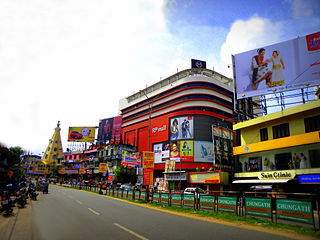
Kollam or Quilon is an old seaport and a city on the Laccadive Sea coast in Kerala, India, on Ashtamudi Lake. The city remains notable as the ancient commercial capital of Kerala and the southwestern Indian coast, in addition to its fame as the "Cashew Capital of the World". The Kollam Municipal Corporation has the second largest budget in Kerala in terms of revenue and expenditure.
